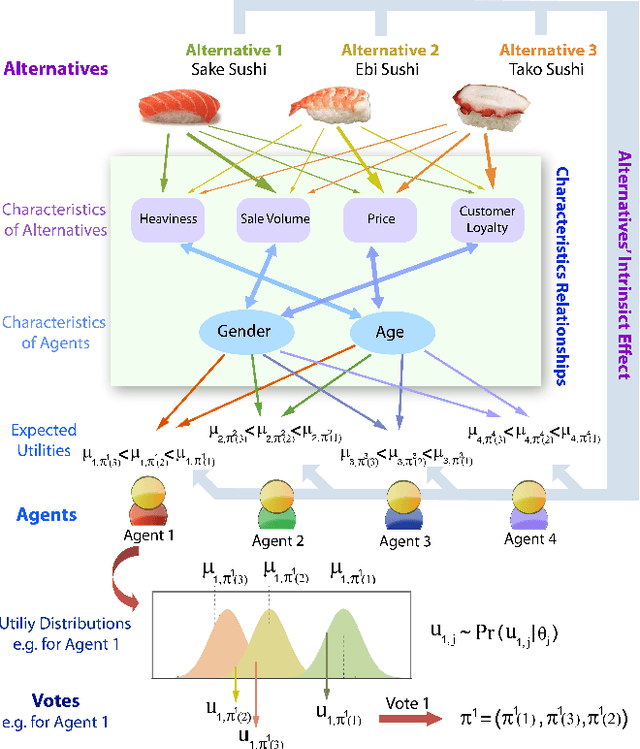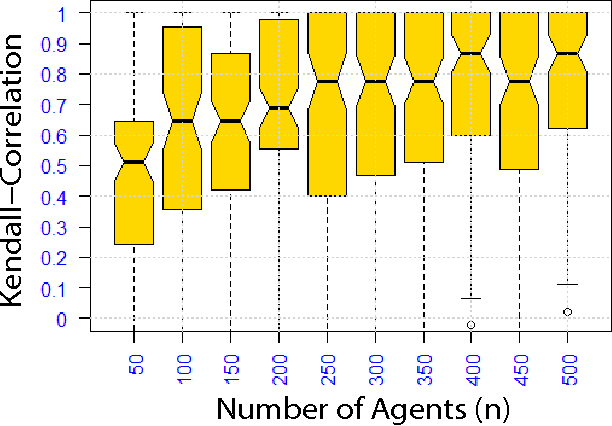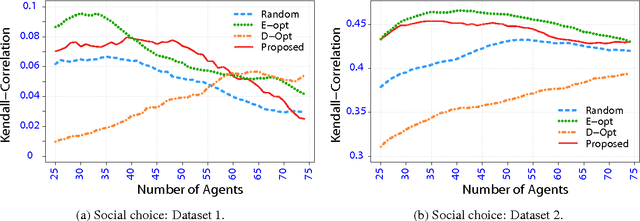Preference Elicitation For General Random Utility Models
Paper and Code
Sep 26, 2013



This paper discusses {General Random Utility Models (GRUMs)}. These are a class of parametric models that generate partial ranks over alternatives given attributes of agents and alternatives. We propose two preference elicitation scheme for GRUMs developed from principles in Bayesian experimental design, one for social choice and the other for personalized choice. We couple this with a general Monte-Carlo-Expectation-Maximization (MC-EM) based algorithm for MAP inference under GRUMs. We also prove uni-modality of the likelihood functions for a class of GRUMs. We examine the performance of various criteria by experimental studies, which show that the proposed elicitation scheme increases the precision of estimation.
* Appears in Proceedings of the Twenty-Ninth Conference on Uncertainty
in Artificial Intelligence (UAI2013)
 Add to Chrome
Add to Chrome Add to Firefox
Add to Firefox Add to Edge
Add to Edge